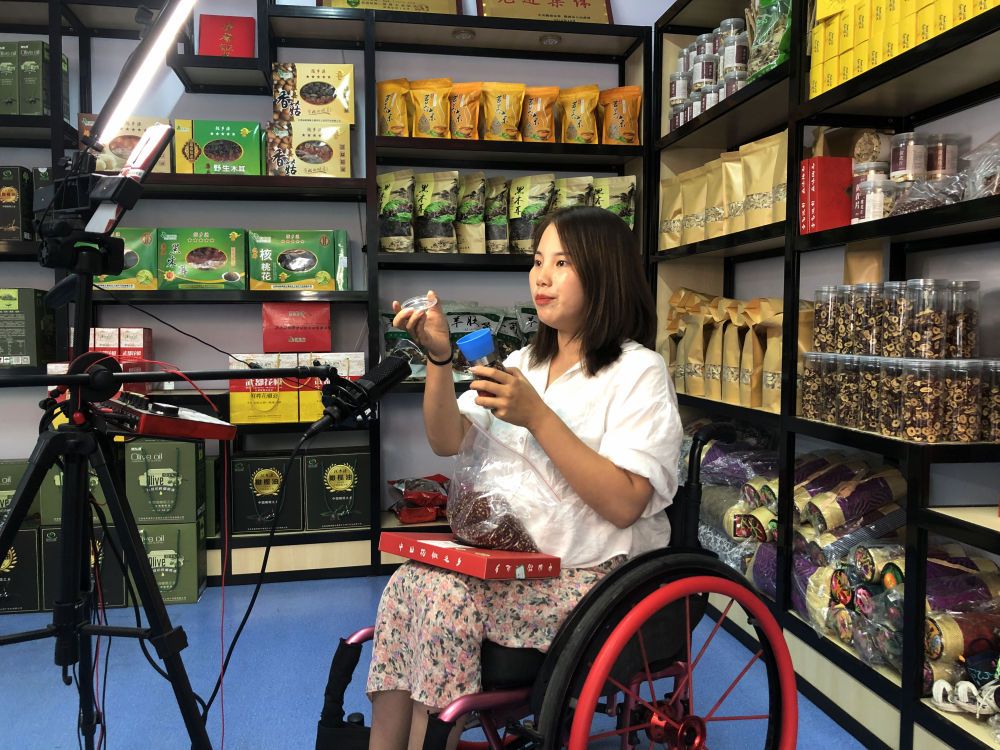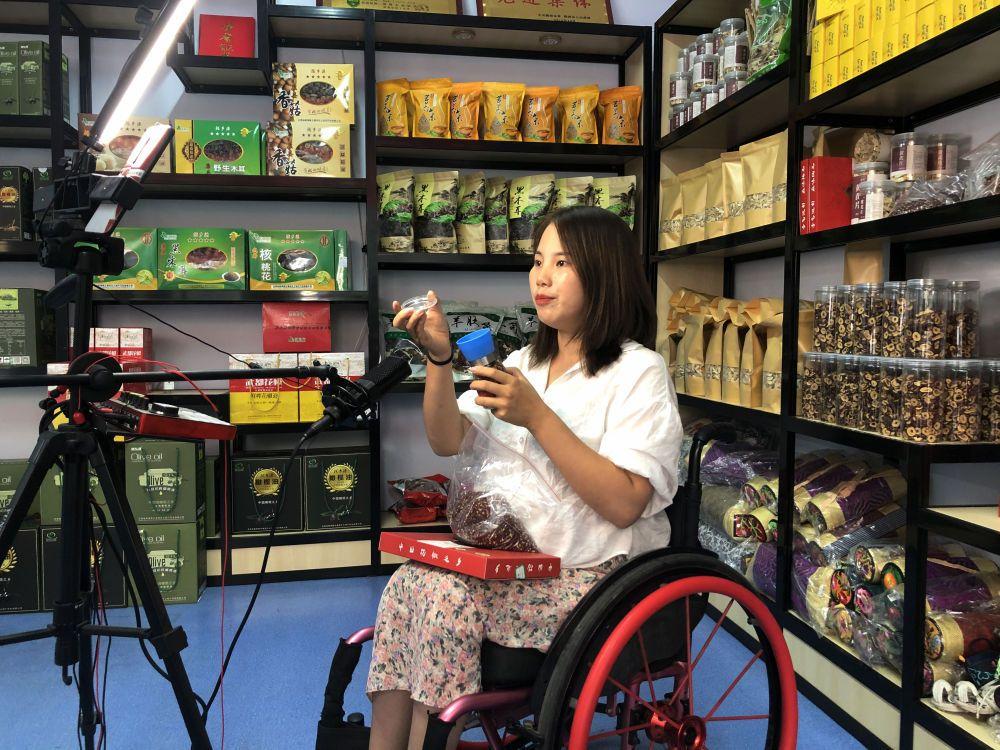
Photo: Shi Zaohua is selling pepper online. (Xinhua/Zhang Wenjing)
LANZHOU, Nov. 11 (Xinhua) --Shi Zaohua, a 29-year-old wheelchair user, has garnered a huge following of 200,000 fans since finding her niche in livestreaming e-commerce.
One of a growing number of livestreamers, Shi is now fully occupied by China's largest annual online shopping event, known as Singles' Day or Double Eleven, which fell on Wednesday.
Early in the morning, she prepared for the event and headed to her office in the city of Longnan, one of the least developed areas in northwest China's Gansu Province.
On her virtual store, she sells local specialties from Sichuan pepper to traditional Chinese medicinal materials to customers across the nation.
Shi became wheelchair-bound following a car accident in 2013. Before discovering livestreaming, she used to spend her days inside without the opportunity to work.
"I felt like I was a burden on my family and didn't know what else I could do," she said.
Yet an opportunity came knocking the next year when Longnan native Du Guiying returned to her hometown, establishing a farmers' cooperative under the call of the local government to promote e-commerce as a means to alleviate poverty in rural areas.
Du invited Shi, who can speak standard Mandarin without a regional accent, to help manage her online store and advised her to try livestreaming e-commerce.
"I was astonished," Shi said. "I felt nervous when talking to the people around me, let alone a live audience."
But Shi finally conquered her fear. She noted down introductions for local specialties she would display in the livestreaming session and recited them repeatedly in front of a mirror. She nicknamed herself "little stone," implying she was tenacious and strong, and not afraid of wind or rain.
In early March, Shi made her successful livestreaming debut, selling products worth a total of around 30,000 yuan (4,548 U.S. dollars) in one day.
Shi represents a new way of shopping in China, which sweeps retailers into a boom of "live commerce" based on the convergence of e-commerce and livestreaming.
China's online retail sales topped 8 trillion yuan in the first three quarters, up 9.7 percent year-on-year, according to the Ministry of Commerce (MOC).
Online retail has accelerated the digital transformation of market entities, boosted new business forms and models, and injected momentum into the digital economy, said MOC spokesperson Gao Feng.
New business models such as livestreaming e-commerce have combined entertainment with consumption and become popular among consumers, said Gao.
The number of users of this burgeoning business model had hit 265 million by March, making up 29.3 percent of the country's total internet users, according to a report released by the China Internet Network Information Center.
E-commerce has injected new impetus into people's lives, said Mao Jinhuang, professor with the Institute of County Economic Development under Lanzhou University, adding that more and more people living deep in the mountains of China have benefited from e-commerce and filled their pockets.
Livestreaming has been a big help to physically challenged people like Shi, who could have been left behind if not for the new business model.
In Longnan, a total of 366 online stores are now run by people with physical disabilities, and jobs have been created for more than 670 such workers.
This year, Shi went to Hangzhou City, an e-commerce hub in east China, for professional livestreaming training. Now she holds at least five livestreaming sessions a week and earns around 5,000 yuan a month. Du has also hired four other physically challenged employees to help sell products online for her cooperative.
"E-commerce livestreaming has not only brought us fortune but also dignity and hope," said Shi.




 A single purchase
A single purchase









